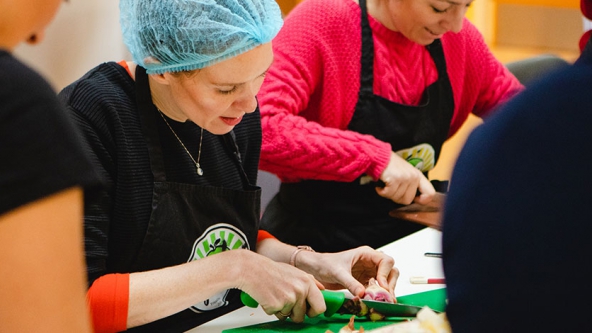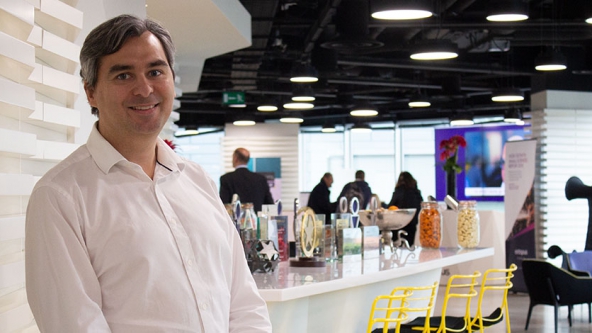Philip Lay joined Octopus Ventures as a Venture Partner in January 2018 after moving back to the UK from San Francisco. As strategy adviser and managing director with Chasm Group, he’s lived and worked for over 25 years in Silicon Valley and Brazil. Here, Philip explains what attracted him to Octopus and describes his unique contribution as a Venture Partner.
What does being an Octopus Venture Partner entail?
Venture Partners make available their experience, expertise, and personal networks to founders of the companies that Octopus Ventures invests in. We help these companies shorten the time and distance to success. One of the explicit aims of Octopus Ventures is to support the entrepreneurs and management teams of each portfolio company, so we are ready to offer advice and assistance wherever relevant. It’s a very rewarding experience.
How long have you been involved with Octopus Ventures and their portfolio companies?
I first got to know Octopus when I was invited to speak at the inaugural Octopus Silicon Valley CEO Summit in 2015. After the summit, three portfolio companies; Amplience, then Conversocial, and finally Semafone signed up for six-month strategy engagements.
This led to further work with Stratajet and the Token team. I grew closer still to Octopus by speaking at the 2016 and 2017 CEO Summits, so it seemed a natural progression to accept the Venture Partner invitation.
Which business aspects do you specialise in?
My expertise is in business and market development strategy. My ‘day job’ since 1995 has been as a managing director and now senior advisor at Chasm Group, a Silicon Valley-based strategy consulting firm.
I help CEOs and management teams deal with strategic inflexion points and different types of growing pains. Startups and scale-ups are high-risk, high-reward endeavours; there are plenty of reasons why companies might struggle to fulfil the potential that Octopus has invested in.
The marketplace these days is full of tech start-ups, so innovative IT solutions are no longer a scarce resource. My role is to help company CEOs and executive teams determine who their target customers are, and how to reach them effectively. For example, enterprise-focused Software as a Service (SaaS) companies tends to experience difficulty getting past their (understandable) fascination with the product they have spent years to build.
At the same time, business executives and managers in enterprise organisations are more interested in dealing with tech vendors that have taken the trouble to understand the business problems they need to solve than in spending time appreciating the product features and speeds that the vendor is so proud of. At the core, we help teams to think about their business from a customer-in perspective, which is much easier to theorise about than to do!
“My preferred starting point with individual CEOs is to address one or two strategic challenges keeping them up at night.”
What does this look like, day to day?
I meet with individual CEOs and executives of portfolio companies, as well as leading working group sessions for groups of CEOs and executives. My preferred starting point with individual CEOs is to have a 90-minute whiteboard session to address one or two strategic challenges that are top of their mind – keeping them up at night if you like.
For years I’ve told my clients that the software business is an unfolding crisis on a daily basis, and I believe this to be truer today than ever before. Even the most successful companies are constantly challenged by a rapid change in three or more vectors at once.
What are you working on at the moment?
Outside of Octopus, I’m currently working on intensive projects with a couple of U.S. based clients that are experiencing healthy growth but struggling to manage that growth successfully.
The good news is that they are growing rapidly. The bad news is that, in different ways, they are over-promising and under-delivering on their commitments to their customers – the cardinal sin in the enterprise software business. Besides my client work, I continue to conduct field research, particularly into the issue of customer success processes, a vital but still poorly understood activity. I’ve also authored my own blog at philiplay.com for many years.
What’s the best thing about this role?
I get to work with companies at an earlier stage than most of the companies that retain the Chasm Group’s services – what we refer to as ‘pre-chasm’. The term ‘chasm’ has been widely disseminated in Crossing the Chasm, a bestselling book by Geoffrey Moore, which has become the bible for software market development.
What drew you to Octopus?
In contrast with many of the venture capital firms and partners I knew in the Valley, I found the Octopus Ventures partners and associates to be very practical, ‘normal’ people. They are very entrepreneur-friendly in their approach to each portfolio company.
In the case of Octopus Ventures, it probably helped that I am a Brit myself, and had been intending to move back to London from San Francisco, after 25 years in the U.S. and 12 years in Brazil before that. My wife and I moved back to Barnes in South London in September 2017.
What do you do to relax when you’re not working?
I’m an avid tennis player. I enjoy reading, the theatre, and travel, with a special interest in Brazil where three of our four children live, as well as France (especially Provence) and Spain (especially Catalunya, and of course Barcelona).


